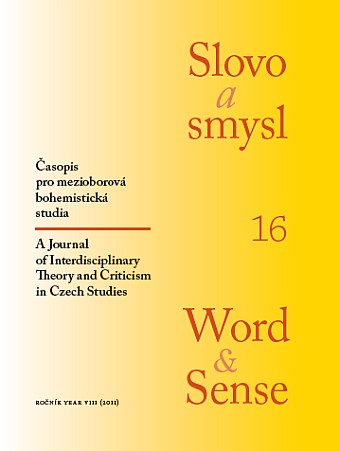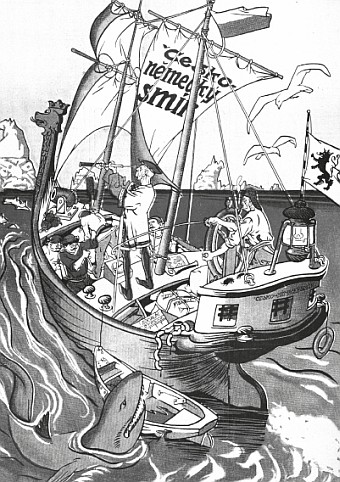Jan Patočka (1907–1977) on Alternative Modernity in Central Europe
Jan Patočka’s essay on German philosophical and aesthetic culture of the Beethoven era was originally published in Hudební rozhledy [Musical Outlooks] in 1971 (vol. 24, no. 1, p. 30–38, see also Umění a čas I, II, vols. 4 and 5 of Patočka’s Collected Writings ed. by I. Chvatík and D. Vojtěch, Praha, OIKOYMENH 2004; a draft of the article as well as the author’s proofs are deposited in the Jan Patočka Archive at the Center for Theoretical Study, Academy of Sciences of the Czech Republic and Charles University; the manuscript with author’s final edits is in private holdings).
Following up his debates with the editor of the journal, he sketched out the historical changes that shaped up the background of (musical) aesthetics at the turn of the 18th and 19th centuries, particularly that of Goethe, Schiller and Hegel. As in most of his studies in the history of philosophy, Patočka here revisited the historical topic with regard to a critical viewpoint of his presence: Through the emphasis on Hegel’s concept of time and the temporality of art as its supreme manifestation (time is spirit, that is activity aiming at ideality, i. e. freedom) he confronted the main political and scientific impact of German culture contemporary to Beethoven that resulted in the “particularization of Europe” with the original significance of German metaphysics of that era. Patočka challenged a radical turn in Hegelian logic (such as that inspired by Karl Marx’s ideas) resulting in social revolutionist tendencies and preference given to empirical knowledge. He also pointed out themes and concepts of infinite freedom in the works of Schiller, Goethe, Beethoven, as well as by Kant, Fichte and Hegel and their proposals to establish an accordance between the human finality and the infinite realm of the Spirit. Besides other events, the rise and fall of the 1968 movements and their tragic aftermath in (Central) European history must not be neglected as a backdrop of Patočka’s philosophical argument.
This late study on the topic of Jan Patočka’s life‑long concern can also be viewed as a summary of his numerous analyses starting with his second doctoral thesis on the problem of the life‑world, Lebenswelt (The ʻNatural World’ as a Philosophical Problem, 1936) or on the topic of the crisis in European Spirit according to Husserl and Masaryk from the same year, his 1938 and 1939 essays on European Culture (in terms of Bildung – see the English translation by Paul Wilson in Cross Currents 1984, No. 3, p. 3–6). He continued with extensive research of German and Czech romantic mythology as a counterproposal to the project of modern instrumental rationality and its technological dominancy and later in the 1950’s with the studies about the impact of Schiller’s aesthetics on František Palacký’s early work. His essays on Bernard Bolzano showed an alternative concept of a nation building process to the Revivalist endeavours in the first half of the 19th century. Patočka’s translations of Hegel’s Phenomenology of Spirit (1960) and Aesthetics (1966) were followed up by a series of studies on the concept of temporality of art focusing Hegel’s Jena years. Last, but not least – the articles in the volume O smysl dneška (Towards the Meaning of the Present Days, 1969) in most clarity showed the link between a historical study of divergent currents of Central European legacy at the Czech territory in reference to a contemporary shaping up of an intellectual “opposition”. A final synthesis of his interpretation of European history, including its modern culmination in the Wars of the 20th century, was then presented in Heretical Essays in the Philosophy of History (English translation by E. Kohák, ed. by J. Dodd, Chicago/Lasalle, Open Court 1996) and coined by his activity as one of the first three spokesmen of the Charter 77 petition, a protest against violation of human and civil rights in the “normalized” Czechoslovakia.


